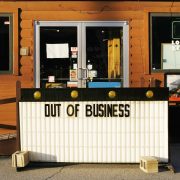Heather Kokesch Del Castillo was unsatisfied with her career. Instead of resolving herself to a life of unfulfillment, she took a risk and made the bold decision to live the life of an entrepreneur.
In 2014, she started “Constitutional Nutrition” in California. As a nutritional coach, she provided her clients with one-on-one dietary counseling. She spent years establishing herself in the field and was able to build a profitable business with a large clientele base. But that was before the government shut down her business.
Now, Heather must endure a bureaucratic circus and pay a large fine before she is legally allowed to reopen her business and earn a living once more.
It sounds almost outrageous to think that the government would stand in the way of an individual’s quest to provide for themselves. But it happens all the time. And in Heather’s case, it happened because she didn’t first obtain an occupational license from the state.
When Heather started Constitutional Nutrition, she was living in California. While California is generally heavily regulated, it does not have any license requirements for aspiring nutritionists. Those wanting to start consulting in that realm are free to do so. They are even free to call themselves “nutritionists.”
But regardless of the law, or lack thereof in the case of California, Heather still went out of her way to get licensed by an independent firm. Though not mandated, it was still an effective way to gain the trust of consumers. Constitutional Nutrition eventually took off and the clients came pouring in. Heather’s risk had paid off and she was able to create value for many willing consumers. But when her husband’s career in the air force resulted in a cross-country move to Florida, Heather’s business was threatened.
Heather did not even think to ask the state of Florida for permission to continue operating her business after she had relocated. Since there were no excessive regulatory obstacles in California, she had no reason to assume there were any elsewhere. She also didn’t think twice about calling herself a nutritionist. That was her profession.
Unfortunately, the state of Florida was not so understanding. In May of 2017, Heather received a cease-and-desist letter from the Florida Department of Health. The letter stated that she was being fined $754 by the Department of Health and demanded that she stop conducting all business related to Constitutional Nutrition immediately. Part of the state’s complaint dealt with her advertising herself as a “nutritionist.” In Florida, you are only allowed to label yourself as such after you have satisfied all the state requirements.
Heather and her husband were shocked, to say the least. They did not even know this law existed in Florida, yet they were being slapped with a sizeable fine. But even worse, the state was revoking Heather’s right to provide for herself.
In order for Heather to reopen her business, she would have to spend thousands of dollars and several additional years in school. This is the only way she can legally obtain a “license to give nutritional advice” in the state of Florida.
But Heather has already proven herself more than capable in her field. This is evidenced by her consumer base. She was able to build a profitable career and provide a service to many willing consumers. Since being forced to close down, Heather has had to turn away clients eager to exchange money for her services.
And even though her business was completely legal in one state, Heather is now left fighting for her right to earn a living in court. Joining with Institute for Justice, Heather is taking on the Florida Health Department. But sadly, her case is not unique.
With over 30 percent of the workforce heavily regulated by occupational licensing, many individuals lose their right be entrepreneurs. And in many cases, these licenses and their corresponding regulations are created by those already in a given field. In fact, many of those responsible for crafting these policies are members of trade unions directly impacted by these licensing procedures.
Many of these regulations are adopted in the name of public safety or protecting the consumer. But that is hardly the case. These licenses act instead as barriers to entry by restricting the number of professionals vying for consumers in a given sector. In other words, it restricts true competition.
In order for entrepreneurs to have the freedom to innovate and create value in the marketplace, we need less government regulation. Hopefully, the courts will understand this, and side in favor of Heather Kokesch Del Castillo, so that she may continue earning a living.













